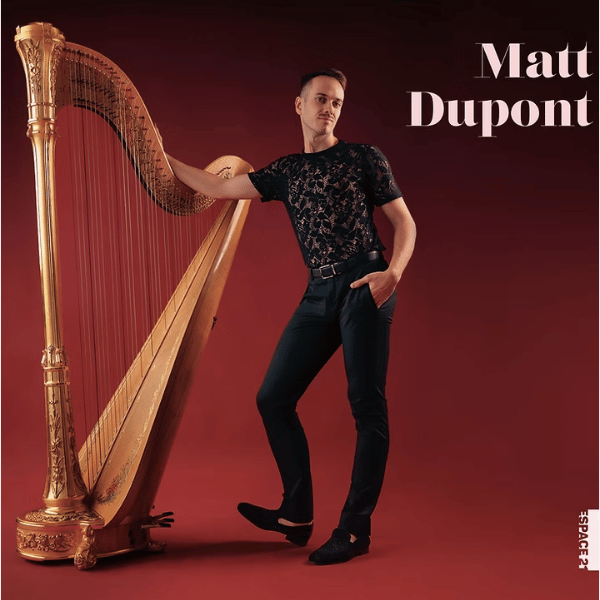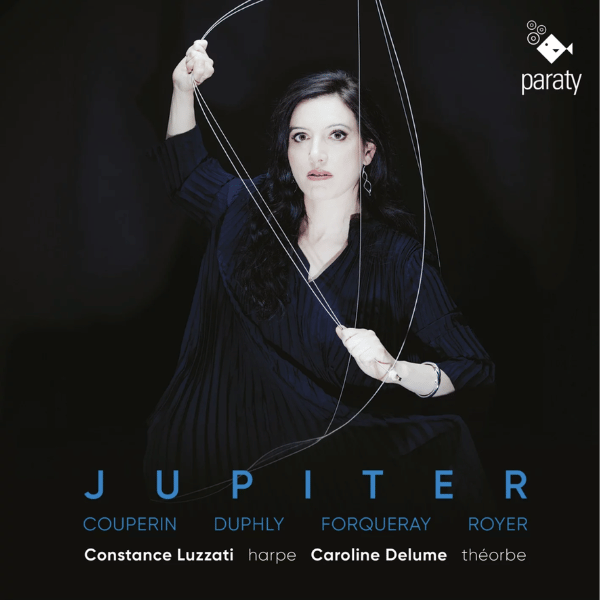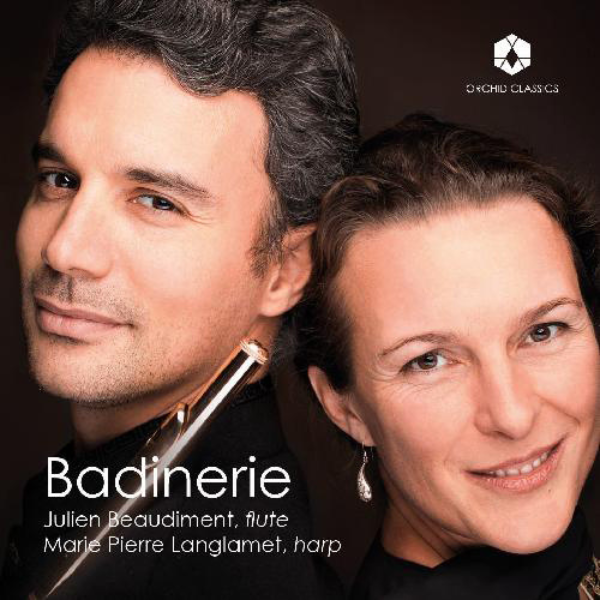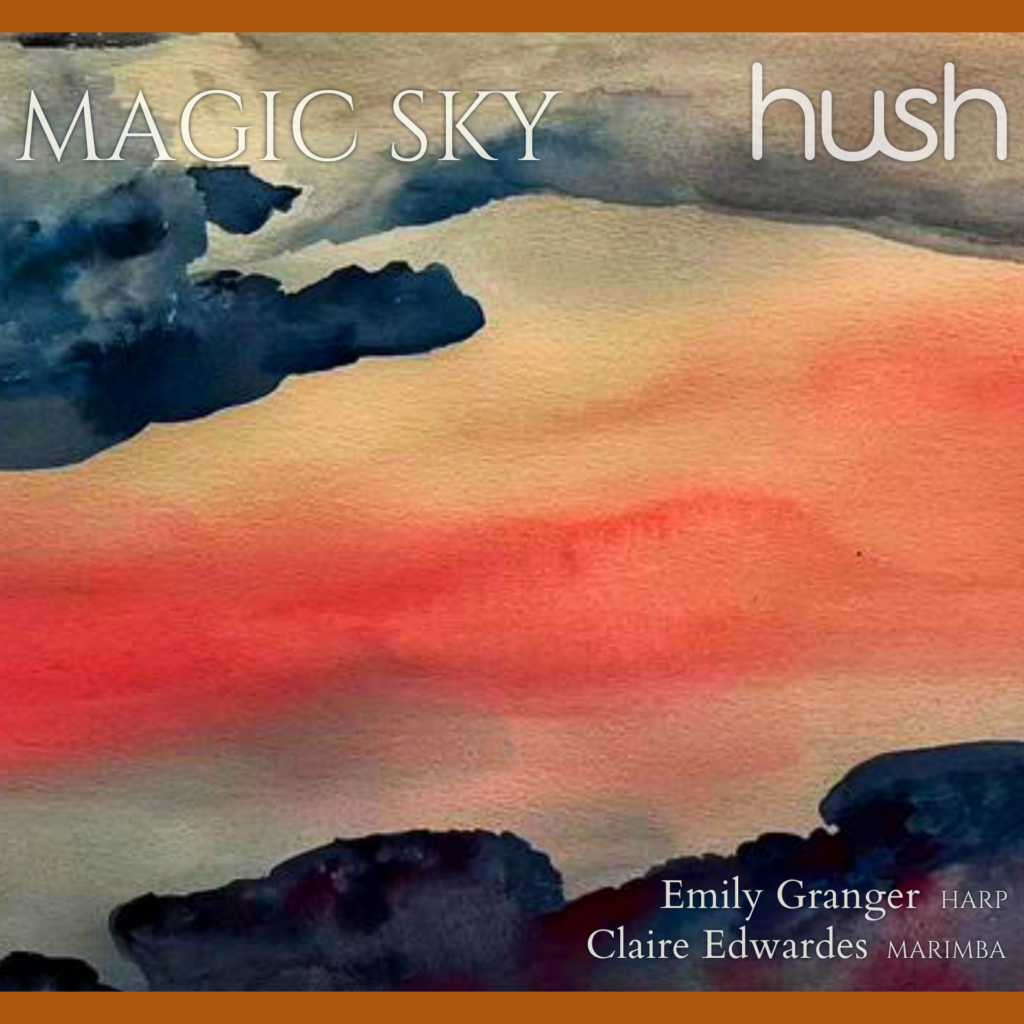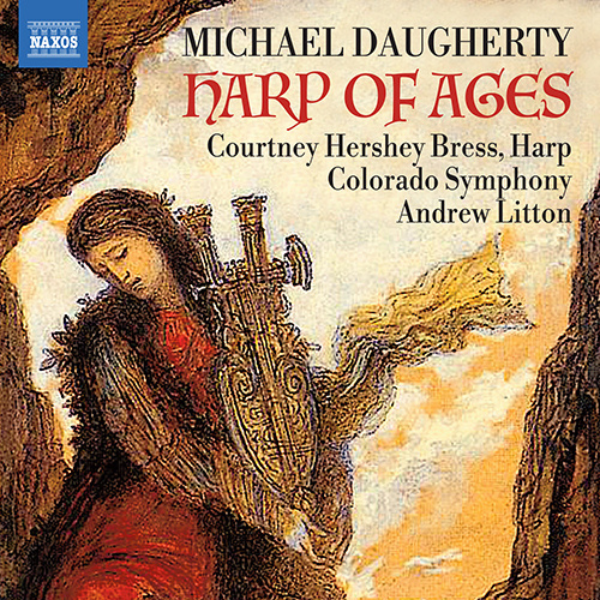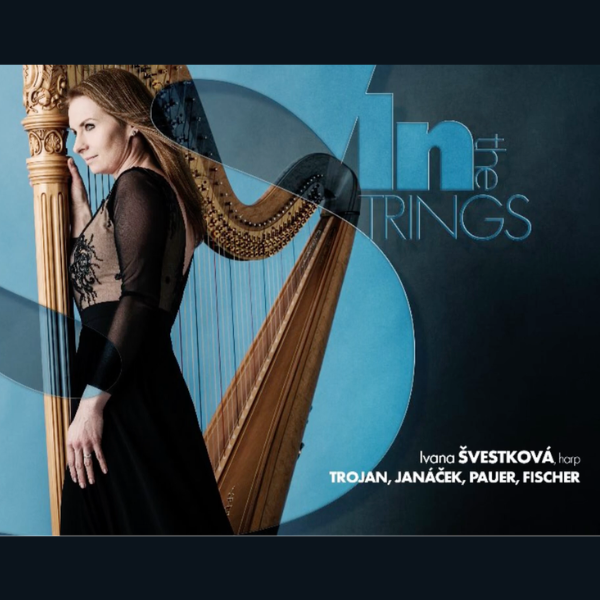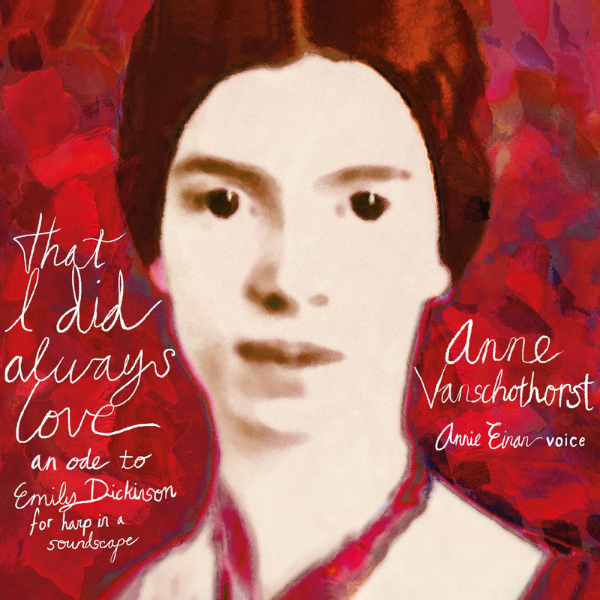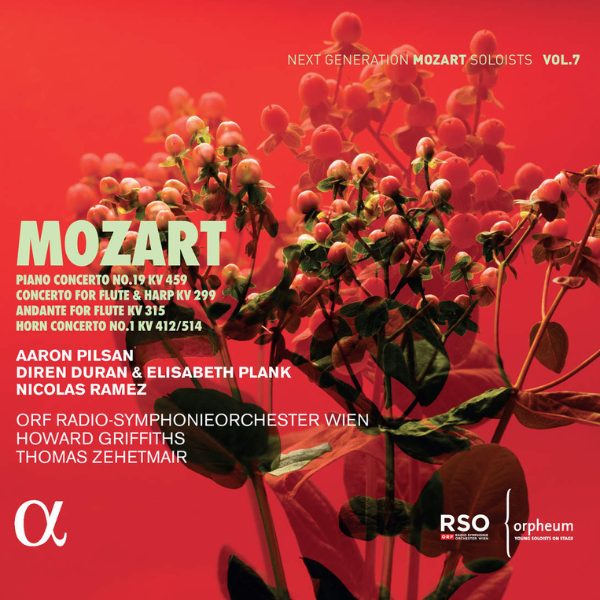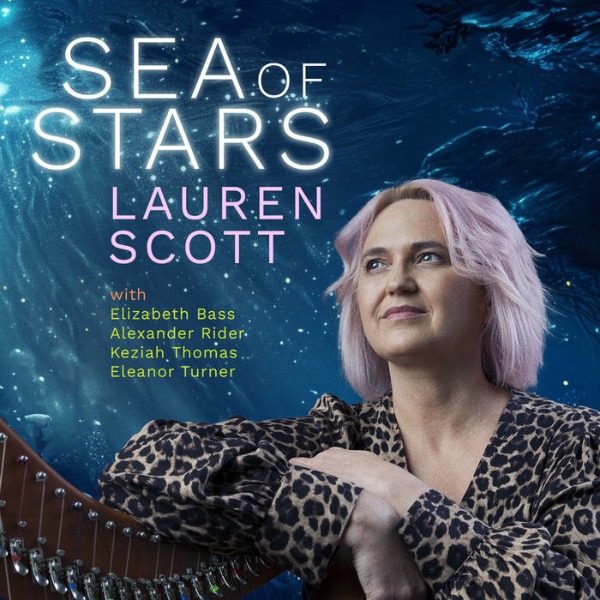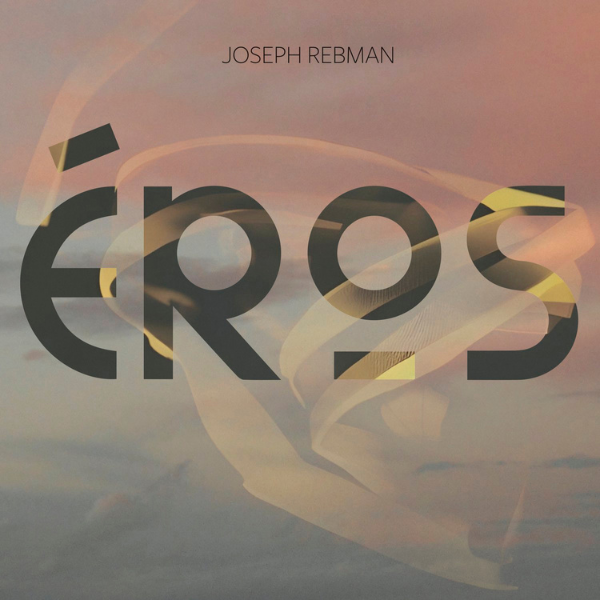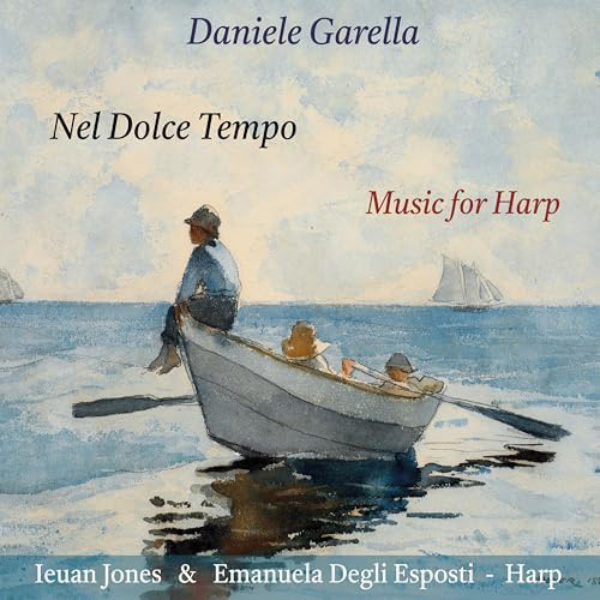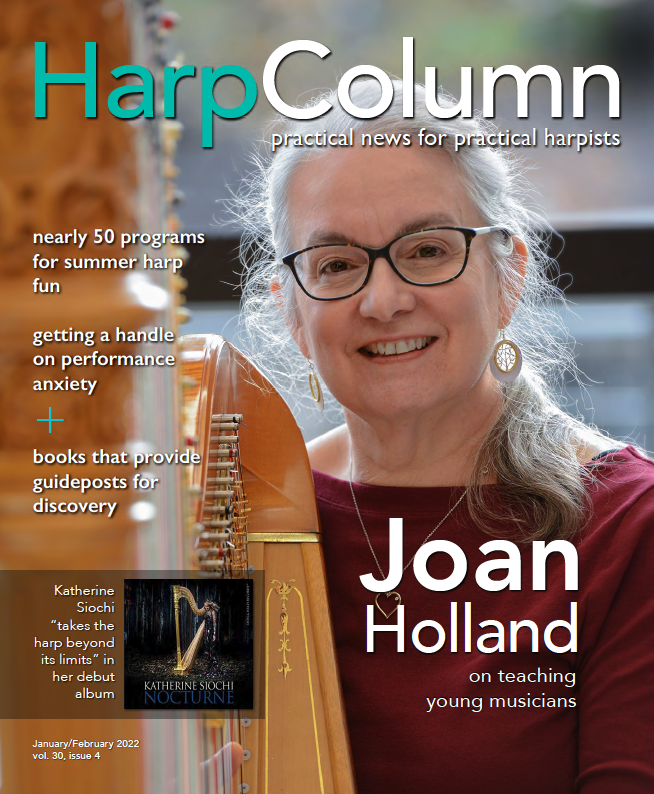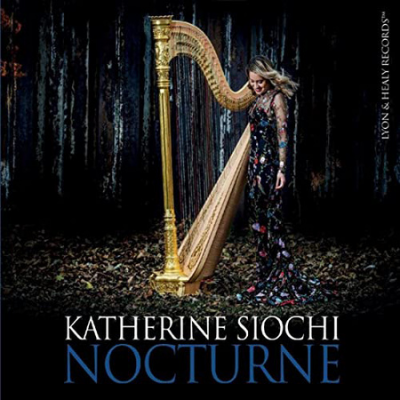
9/10
Katherine Siochi, harp. Lyon & Healy Records, 2021.
Gold medalist of the 2016 USA International Harp Competition, Katherine Siochi began studying piano years before her hands ever touched a harp. She kept up those studies at Juilliard even as she made harp her principal instrument, collecting heaps of praise and prizes. And it shows. In her long-awaited debut album Nocturne, Siochi displays an intuitive sense of musical line and phrase that takes the harp beyond its limits and more toward the world of piano and a wider realm of artistry and expression.
It’s no wonder she begins the album with a work by a composer dubbed the “Liszt of the harp,” Elias Parish-Alvars. A performer himself, his technique was said to be formidable and that he could play Chopin and Beethoven concertos at sight. He didn’t spare the performers of his own compositions, demanding as much from them as he would himself. Siochi makes light of these demands in the Grande fantaisie et variations de bravoure with brilliant mastery, filling the space with her warm sound, one that never loses its sonority even at forte. With emphasis on bravoure, her approach is much like playing Chopin at the keyboard, never losing the melodic line while still executing complexly florid phrases with exceptional agility. As if a tightrope walker—or maybe more aptly, a ballerina—she causes us to hold our breath as she takes over the harp with a daring that belies any difficulty.
Siochi has earned a well-deserved reputation as a transcriber of piano works, with painstaking attention paid to the unique requirements for voicing on the harp. On this disc, she gives us a taste of three by Debussy and three by Chopin. My test for successful arrangements is if the new work becomes truly new, altogether a fresh voice. This is a tough challenge for Debussy, which is infused with a kind of pastel delicacy that is not easily captured in the higher register of the harp, nor when the strings are pulled rather than depressed. In the Ballade, Siochi makes a good argument, the repeated arpeggiation creating a whir of color. Indeed, Bruyères takes yet another step into the soundscape Debussy sought, the floating un-dampened strings lending an even more Calme quality.
Thoughtfully programmed is Debussy’s derivative Valse romantique directly before a set of Chopin Nocturnes, setting our ears up for a Paris salon, circa 1830. Siochi delivers an intimacy, though completely in charge of the emotional map. Particularly in Op. 9, No. 1, where she elicits the moody, nighttime reflections of this character piece, with perfectly timed rubato and a je ne sais quoi of unresolved life questions. Why else would we listen to this music but to speak for our own feelings?
A new favorite is a work by Siochi’s brother, Jeremiah Siochi. Sublimation won its own prize at the USA International Composition Competition in 2015. In it, he makes the percussive possibilities on the harp the focal point, beginning with a jazzy back-and-forth between knocking on the soundboard and suggestions of melody, which eventually blossom into a lyrically romantic gesture in the vein of Debussy before breaking out into a grooving duet.
Carlos Salzedo’s Scintillation rounds out this journey of colors and moods with panache.





